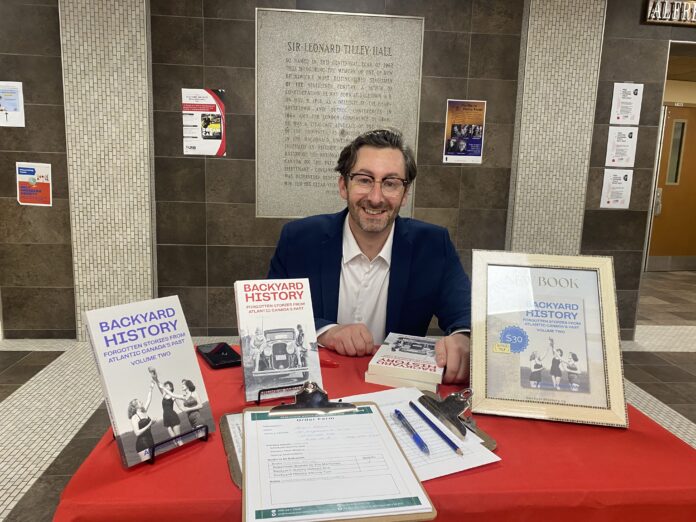

To commemorate Women’s History Month in Canada, Andrew MacLean, columnist for the Backyard History newspaper, tells a woman’s forgotten story about the highs and lows of living in Atlantic Canada.
This lecture series emphasizes the challenging lives of women authors navigating and trying to earn their place in society.
On Oct. 17, MacLean, in partnership with the Fredericton Region Museum, brought to life the letters of Juliana Horatia Ewing, a famous English author.
Maclean took the audience back to what life was in Fredericton between 1867 and 1869. Taking place on UNB’s campus, MacLean highlights how interesting it is to hear from an outside observer who found humour in everyday life in Fredericton.
“It can be harder to find written works by women writing in first person during this time,” he said. “But it’s so exciting to have so much of this from a specific era.”
The museum owns about 400 pages of letters, which were kept by Ewing’s family and later moved to various institutions.
Despite Ewing’s aristocratic background in England, she was fascinated by daily life in Fredericton, including the lack of street names, the beauty of local culture and her interactions with the Indigenous community.
“Fredericton is on the river and all by the riverside is lovely and we have not been able to decide by what light and by what time of day it looks most beautiful,” wrote Ewing in one of her letters.
The first night the English author arrived in Fredericton with her husband, City Hall burned to the ground, where locals left their houses, gathered around the building and they just stood there and watched the building burn.
“An almost comical element was to see the ashes fall about their eyes, going about for a pocket handkerchief and wiping stuff all over their faces,” she wrote.
She also writes about her first encounter with an Indigenous woman at the market, noting her attire. Ewing’s descriptions of Indigenous people showed curiosity without judgment.
“She was such a picturesque picture. She wore a striped shawl, but curiously, thrown around her like a blanket, a black cat embroidered with beads, a short black petticoat and black trousers stuffed into Canadian overshoes,” she wrote in her description.
MacLean finished the lecture on a light-hearted note, highlighting the English author’s continuous culture shocks as she lived in Fredericton for three years and how the town had an overall quaint feel to it.
“Everything is dear and inferior in this place,” wrote Ewing.
MacLean said her letter adds a lot to what historians know about this time; how fascinating it was to read Fredericton’s history from a visitor’s perspective and how she found amusement in everything surrounding her, including the time when a neighbour stole her cabbages.
“I think it just shines a spotlight on how maybe the challenges are assumptions about how people, especially women, used to live in times gone past,” said MacLean. “I think that’s significant to remember since it’s Women’s History Month.”
